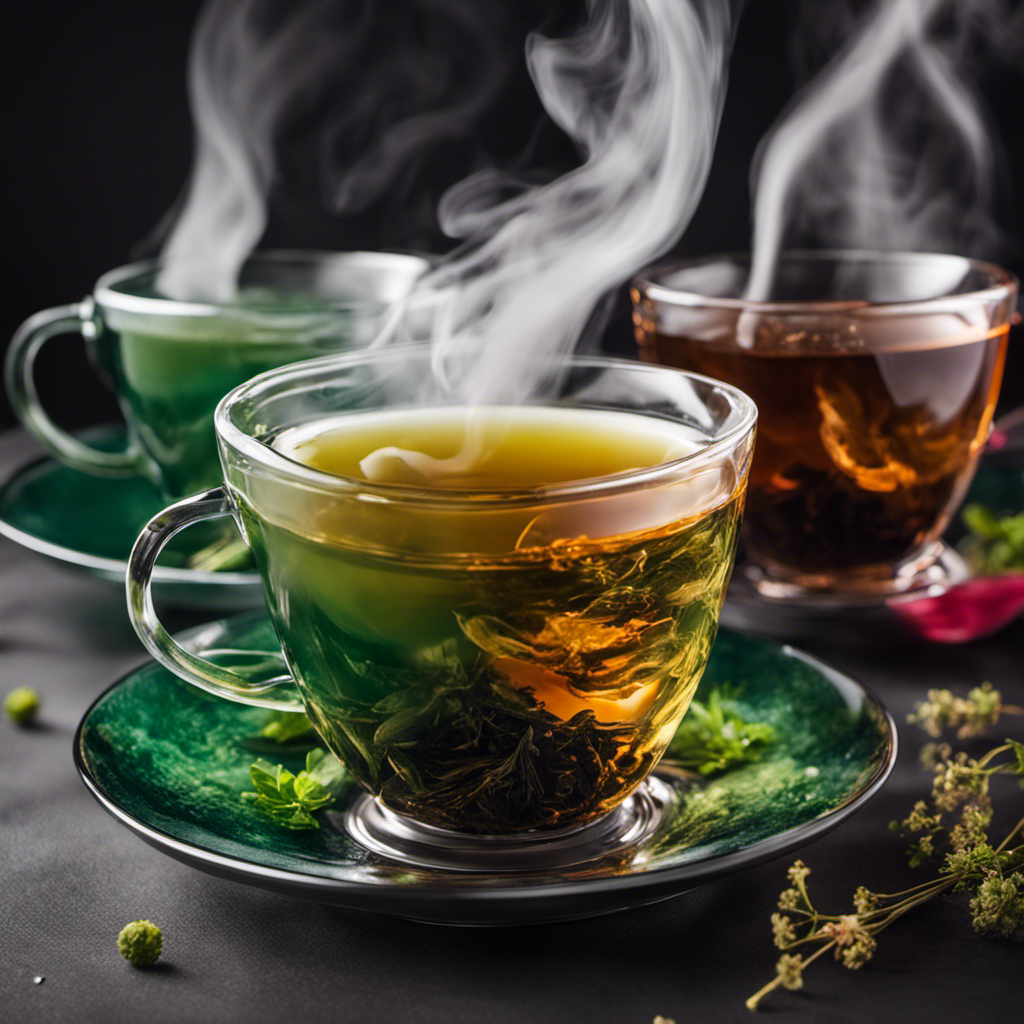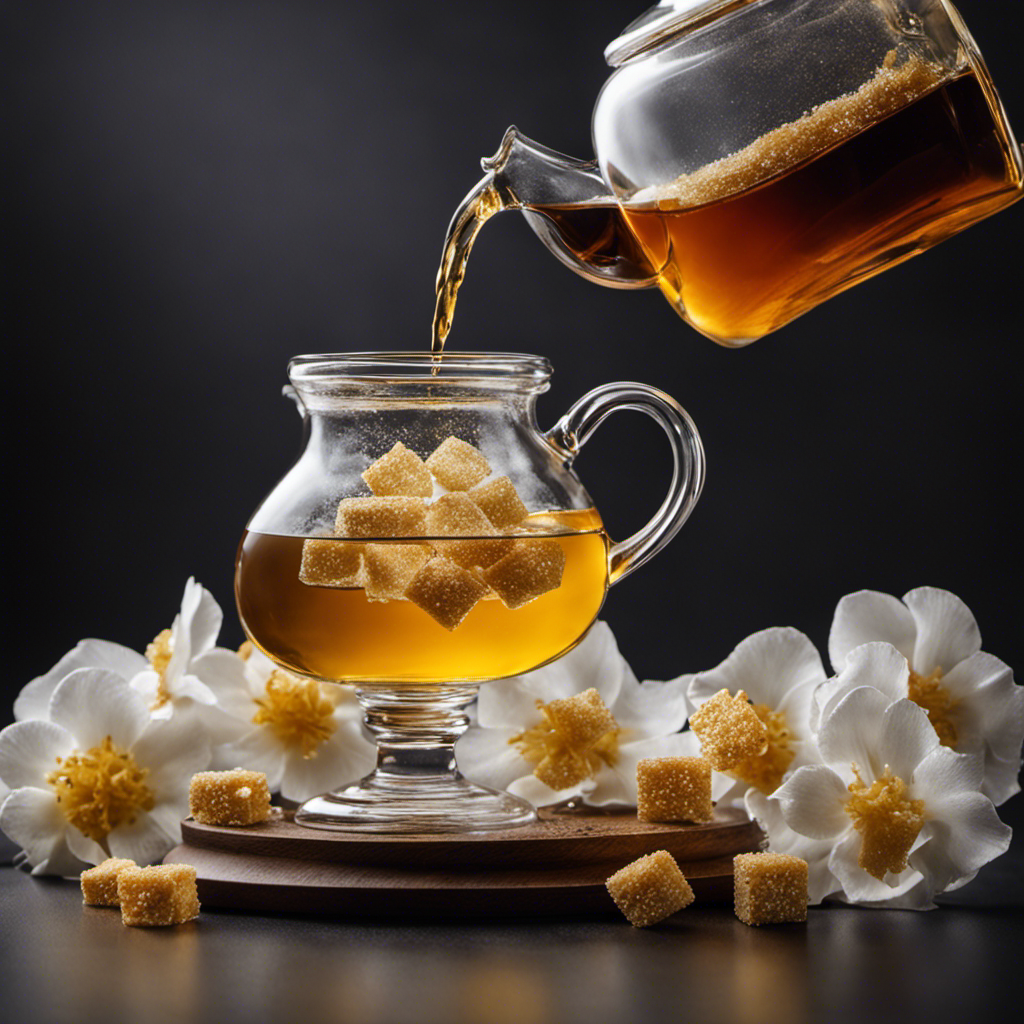Types of Coffee Beans
Discover The Best Colombian Coffee: 7 Top Brands

Colombia is a country that is known for its coffee production, and for good reason. Colombian coffee is highly regarded for its unique flavor profile, which is characterized by a balance of acidity, sweetness, and bitterness. With so many different Colombian coffee brands available, it can be difficult to know which one to choose.
In this article, we will introduce you to the top 7 Colombian coffee brands so that you can discover the best one for your taste preferences. Each of the Colombian coffee brands on our list has its own unique characteristics and flavor profile. Whether you prefer a bold and robust coffee or a lighter, fruitier roast, there is a Colombian coffee brand that will suit your taste.
We will provide you with detailed information about each brand, including their history, production methods, and tasting notes. Additionally, we will give you a buying guide to help you make an informed decision when purchasing Colombian coffee.
By the end of this article, you will have a thorough understanding of the best Colombian coffee brands and what to look for when choosing the perfect cup of coffee.
Key Takeaways
- Colombian coffee brands like Volcanica Colombian Supremo, Colombian Peaberry, Lavazza Tierra Colombia, and Koffee Kult Colombia Huila are great options for coffee lovers.
- When buying Colombian coffee, it’s important to consider certifications like FairTrade and Kosher, as well as the coffee processing method and the origin of the beans.
- For the best tasting cup of Colombian coffee, it’s recommended to choose single-origin coffees, look for the farmer’s name on the bag, and opt for a lighter roast to retain the unique flavors of the country.
- Drinking geisha coffee should be enjoyed without cream or sugar, and peaberry coffee may not be worth the price unless you have a developed palate or reliable brewing method.
Colombian Coffee Brands
The article presents a list of Colombian coffee brands, including Volcanica Colombian Supremo, Colombian Peaberry, Volcanica Colombian Supremo Decaf, Colombian Geisha, Lavazza Tierra Colombia, Koffee Kult Colombia Huila, and Java Planet Colombian Organic, each with unique flavors, processes, and certifications.
Colombian coffee is known for its high quality, and the ‘Farm to cup’ movement has helped to showcase the unique flavors of Colombian coffee. Colombian coffee culture is deeply rooted in the country’s history and the coffee industry has been a significant part of the country’s economy for many years.
The list of Colombian coffee brands mentioned in the article showcases the diversity of Colombian coffee, from the unique flavors of Colombian Peaberry to the high-quality decaf coffee offered by Volcanica Colombian Supremo Decaf. Each brand has its own unique processes and certifications, making them stand out in the market.
The ‘Farm to cup’ movement has helped to increase the popularity of Colombian coffee, highlighting the importance of sustainable and ethical sourcing practices. Colombian coffee culture celebrates the art of coffee making, and the country’s coffee industry is known for its high standards and passion for quality.
Buying Guide
When purchasing Colombian coffee, it is important to consider certifications such as FairTrade and Kosher. These certifications ensure that the coffee is ethically sourced and produced, and that the farmers receive fair compensation for their work.
It’s also important to consider the different processing methods for both regular and decaf coffee. The two processes for decaffeination are chemical and water-based, and it’s recommended to opt for water-processed decaf coffee for a healthier option.
Additionally, when buying single-origin Colombian coffee, it’s better to look for a lighter roast instead of a dark roast. This is because a lighter roast retains more of the unique flavors specific to that country. It’s also recommended to buy whole bean coffee instead of pre-ground coffee for a better-tasting cup, and to grind the beans just before brewing.
While buying FairTrade or USDA Organic coffee is a good step towards sustainability, it’s important to note that small coffee growers may not be able to afford these certifications. Instead, looking for the farmer’s name on the bag is a better indicator of sustainably-sourced coffee.
Colombian Coffee Brands
Colombian coffee is renowned worldwide for its exceptional quality, rich flavor, and delightful aroma. As the third-largest coffee producer in the world, Colombia offers a diverse range of coffee brands to explore. In this article, we present seven top Colombian coffee brands that have earned a reputation for excellence. Get ready to embark on a journey of discovering some of the finest coffees from Colombia!
1. Juan Valdez Café
Juan Valdez Café is one of the most iconic Colombian coffee brands, representing the Colombian Coffee Growers Federation. With a strong commitment to quality, Juan Valdez Café sources its beans from Colombian coffee farmers, ensuring fair prices and sustainable practices.
Their coffee is characterized by a balanced flavor profile, medium body, and pleasant acidity.
2. Café Devoción
Café Devoción is a specialty coffee brand known for its meticulous approach to sourcing and roasting. They focus on single-origin coffees, working directly with Colombian farmers to obtain high-quality beans. Café Devoción offers a diverse range of flavors, from fruity and floral to chocolatey and nutty, showcasing the unique characteristics of Colombian coffee regions.
3. Oma Coffee
Oma Coffee has been producing exceptional Colombian coffee since 1956. With a commitment to sustainability and quality, Oma Coffee sources beans from various regions in Colombia and carefully roasts them to perfection. Their coffees are known for their smooth, well-balanced flavors and delightful aromas.
4. Café San Alberto
Café San Alberto is a family-owned coffee brand that has been producing coffee for generations. Their focus on specialty coffee and dedication to quality control has earned them a reputation as one of Colombia’s top coffee producers. Café San Alberto offers a range of premium coffees with distinct flavors, including notes of caramel, citrus, and chocolate.
5. Café La Palma y El Tucán
Café La Palma y El Tucán is a unique coffee brand that works closely with local farmers to promote sustainable and innovative practices. They emphasize the use of shade-grown coffee and support biodiversity conservation. Café La Palma y El Tucán’s coffees exhibit complex flavors and a velvety mouthfeel, making them a favorite among specialty coffee enthusiasts.
6. Café Devocafé
Café Devocafé is another outstanding Colombian coffee brand that focuses on single-origin, specialty coffees. They work directly with smallholder farmers, ensuring fair trade practices and premium quality beans. Café Devocafé offers a diverse range of flavors, from bright and fruity to rich and caramel-like, providing a delightful experience for coffee lovers.
7. Café Quindío
Café Quindío is a well-established Colombian coffee brand known for its commitment to sustainable farming and social responsibility. They source beans from the Quindío region, renowned for its high-altitude coffee plantations. Café Quindío’s coffees have a distinct sweetness, medium body, and vibrant acidity, capturing the essence of Colombian coffee.
When it comes to Colombian coffee, these seven brands represent the pinnacle of quality and flavor. Whether you prefer a well-rounded cup, fruity notes, or a deep chocolatey profile, these brands offer a diverse selection to cater to your preferences. Explore their offerings and embark on a journey to discover the best of Colombian coffee right from the comfort of your own home!
Additional Information
Considerations such as processing methods, drying techniques, and bean varieties can all affect the taste of Colombian coffee in your cup. When it comes to processing methods, Colombian coffee is typically either washed or unwashed. Washed coffee involves removing the outer layers of the coffee cherry and then drying the beans, resulting in a cleaner taste with more acidity. Unwashed coffee, also known as natural or dry-processed coffee, is dried with the cherry still intact, resulting in a sweeter taste with less acidity. Drying techniques can also impact the taste, with some coffee being sun-dried and others being dried in mechanical dryers. Lastly, bean varieties can affect the flavor profile, with some varieties known for their fruity or floral notes while others have nutty or chocolatey flavors.
In addition to processing methods and bean varieties, altitude also plays a significant role in the taste of Colombian coffee. Higher altitude coffee tends to have a brighter acidity and more complex flavor profile, while lower altitude coffee is generally smoother with a milder flavor. This is because coffee grown at higher altitudes undergoes a slower maturation process, resulting in denser beans with more complex flavors. When buying single-origin Colombian coffee, it’s important to consider the altitude at which the coffee was grown to ensure that you’re getting the flavor profile you desire. The table below summarizes the different processing methods and their impact on taste, as well as the altitude at which some popular Colombian coffee brands are grown.
Processing Method Taste Profile Examples of Coffee Brands Washed Clean, acidic Lavazza Tierra Colombia Unwashed Sweet, low acidity Koffee Kult Colombia Huila Sun-dried Fruity, floral Volcanica Colombian Supremo Mechanical-dried Nutty, chocolatey Java Planet Colombian Organic High Altitude Bright acidity, complex flavors Colombian Peaberry Low Altitude Mild, smooth Volcanica Colombian Supremo Decaf
Frequently Asked Questions
What is the history of coffee production in Colombia?
The history of coffee production in Colombia dates back to the 18th century when it was first introduced by Jesuit priests.
Since then, coffee has become a major part of the country’s economy, with the coffee industry having a significant impact on the country’s social and economic development.
Colombian coffee exports account for a large portion of the country’s total exports, making it one of the most important agricultural products.
In the early 20th century, coffee production in Colombia was hit by a fungal disease known as coffee rust, which led to a decline in production.
However, the Colombian government took measures to address this issue, including the establishment of the Federación Nacional de Cafeteros de Colombia, which helped to promote sustainable coffee production practices and improve the quality of Colombian coffee.
Today, Colombian coffee is known for its unique flavors and high quality, making it a popular choice among coffee enthusiasts around the world.
Are there any Colombian coffee brands that are specifically known for their sustainability practices?
Colombian coffee brands that are specifically known for their sustainable and ethical sourcing practices include Café Direct, Pergamino Cafe, and La Palma y El Tucán.
These brands prioritize fair trade and organic certifications, support small farmers, and implement environmentally friendly practices in their production processes.
Café Direct, for example, focuses on building long-term relationships with their farmers and ensuring they receive fair prices for their coffee.
Pergamino Cafe works with smallholder farmers and invests in sustainable farming practices, while La Palma y El Tucán has a direct relationship with their farmers and utilizes innovative processing methods to reduce water usage and waste.
These brands demonstrate a commitment to sustainable coffee production and are a great choice for consumers who prioritize ethical and environmentally responsible sourcing practices in their coffee choices.
What brewing method is best for Colombian coffee?
When it comes to brewing Colombian coffee, there are two popular methods: French press and pour over.
Both methods allow for a full-bodied and flavorful cup of coffee, but the French press tends to extract more oils and flavors from the beans, resulting in a richer and more robust taste.
On the other hand, pour over brewing offers a cleaner and clearer cup with more nuanced flavors. Ultimately, the choice between the two methods comes down to personal preference.
When it comes to pairing Colombian coffee with desserts, it’s best to opt for sweet treats with flavors that complement the coffee’s fruit and nutty notes. For example, chocolate desserts pair well with Colombian coffee, as do desserts with caramel and nutty flavors.
How does the taste of Colombian coffee differ from coffee from other countries in South America?
Colombian coffee taste is unique due to its flavor profile, which is characterized by a mild, well-balanced flavor with a subtle acidity. The coffee is grown in high altitude regions and has a medium body with a sweet and nutty aroma.
Compared to coffee from other countries in South America, Colombian coffee has a distinct flavor and aroma due to its unique growing conditions, processing methods, and variety of coffee beans grown in the country. The flavor profile of Colombian coffee can vary depending on the region and altitude it’s grown in, with higher altitude coffee producing a more complex flavor profile.
Overall, Colombian coffee is known for its consistent quality and unique flavor, making it a popular choice among coffee enthusiasts worldwide.
Can Colombian coffee be used in espresso machines?
Espresso compatibility with Colombian coffee depends on the roast profile. Lighter roasts that retain the unique flavors specific to the country are not recommended for espresso machines, as they may not provide the desired taste and consistency.
On the other hand, medium and darker roasts are more suitable for espresso, providing a fuller body and stronger taste. It is important to note that the roast profile and the origin of the beans affect the taste of the final product, and Colombian coffee’s unique flavors can be appreciated in a variety of brewing methods.
Therefore, when considering the espresso compatibility of Colombian coffee, it is essential to choose the right roast profile that maintains the balance between taste and consistency.
Justin is a seasoned author, coffee and tea enthusiast, and an essential member of the Cappuccino Oracle team. With a keen appreciation for the complexities of coffee, coffee alternatives, and tea, Justin has dedicated his professional career to exploring these realms and sharing his insights with readers worldwide.
Justin’s immersion in the world of coffee, coffee alternatives, and tea began at a young age, kindling a passion that extended beyond mere consumption. This love for these beverages led him to combine his talent for writing with his devotion to coffee and tea, bringing him to Cappuccino Oracle as a dedicated author.

-

 Americano4 weeks ago
Americano4 weeks agoHow to Make Americano With Moka Pot
-

 Americano2 weeks ago
Americano2 weeks agoHow to Make Korean Iced Americano
-

 Americano4 weeks ago
Americano4 weeks agoHow to Make Iced Americano With Instant Coffee
-

 Americano4 weeks ago
Americano4 weeks agoHow to Make Americano With Bialetti
-

 Americano4 weeks ago
Americano4 weeks agoHow to Make Dutch Bros Americano
-

 Americano6 days ago
Americano6 days agoHow to Make an Iced Americano With Nespresso
-

 Americano2 weeks ago
Americano2 weeks agoHow Many Shots of Espresso for 16 Oz Americano
-

 Americano4 weeks ago
Americano4 weeks agoHow to Make a Hazelnut Americano



















